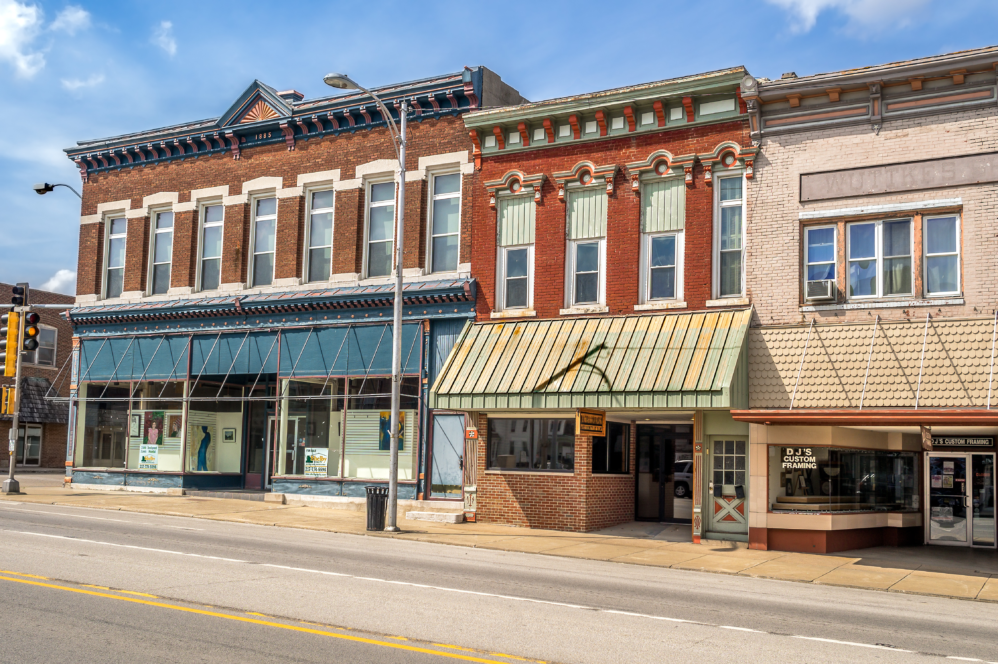The industry landscape in a small to medium city can vary, but here are 20 common industry categories that often characterize economic activities in small-medium urban centers. The size of the community served is important in assessing the potential viability of the business. In smaller centres we are more likely to find entrepreneurs who offer a variety of skills and services. In larger centres we will find more narrowly specialized services:
1. Retail Trade: Involves the sale of goods directly to consumers. This can include various types of stores such as clothing shops, grocery stores, and specialty stores.
2. Healthcare Services: Encompasses medical practices, clinics, pharmacies, and other healthcare-related services.
3. Food Services and Hospitality: Includes restaurants, cafes, catering services, and other food-related businesses that provide dining or catering options.
4. Construction and Contracting: Involves construction services, building contractors, and related trades such as plumbing, electrical work, and carpentry.
5. Professional Services: Encompasses a range of professional services such as legal, accounting, consulting, and marketing firms.
6. Education and Training: Involves educational institutions, training centers, and private tutors providing learning services.
7. Technology and IT Services: Encompasses technology companies, IT services, software development, and computer repair services.
8. Manufacturing and Production: Involves the production of goods, which can include small-scale manufacturing and assembly operations.
9. Real Estate and Property Management: Involves real estate agencies, property management firms, and related services.
10. Automotive Services: Includes auto repair shops, dealerships, and related services such as detailing and maintenance.
11. Financial Services: Encompasses banking, financial planning, insurance, and other financial services.
12. Arts and Culture: Includes art galleries, theaters, music venues, and other cultural institutions.
13. Tourism and Hospitality: Involves businesses catering to tourists, including hotels, tour operators, and travel agencies.
14. Transportation and Logistics: Encompasses local transportation services, delivery companies, and logistics firms.
15. Fitness and Wellness: Includes gyms, fitness studios, wellness centers, and related health services.
16. Environmental and Sustainability Services: Involves businesses focused on sustainable practices, green technologies, and environmental consulting.
17. Personal Care Services: Encompasses beauty salons, spas, barbershops, and other personal care services.
18. Non-Profit and Social Services: Involves charitable organizations, community services, and social outreach programs.
19. Utilities and Energy Services: Encompasses local utility providers, renewable energy initiatives, and energy efficiency services.
20. Home Services: Includes home improvement services, cleaning services, and other services related to household needs.
Notes
These categories can serve as a broad overview, and the specific industries in a small-medium city will depend on factors such as local demand, resources, and regional characteristics.
These industry categories collectively contribute to the economic and social fabric of a small-medium city, creating a diverse and interconnected business environment. The specific viability thresholds can vary based on local demand, economic conditions, and the unique characteristics of each city.

